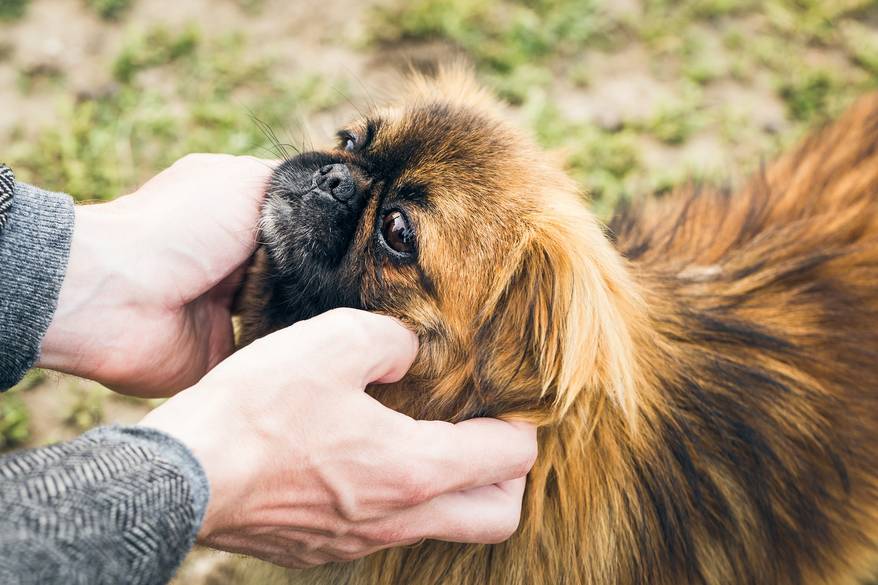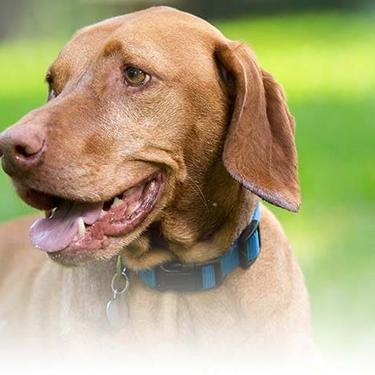
-
Find the right food for your pet
Take this quiz to see which food may be the best for your furry friend.
Find the right food for your pet
Take this quiz to see which food may be the best for your furry friend.
Featured products
 Small & Mini Savory Stew with Chicken & Vegetables Dog Food
Small & Mini Savory Stew with Chicken & Vegetables Dog FoodA delicious complement to the nutrition of Science Diet Small & Mini 7+ dog food
Shop Now Adult 7+ Perfect Digestion Chicken, Whole Oats & Brown Rice Recipe Dog Food
Adult 7+ Perfect Digestion Chicken, Whole Oats & Brown Rice Recipe Dog FoodScience Diet's breakthrough nutrition supports ultimate digestive well-being & healthy microbiome for dogs age 7+
Shop Now Adult Healthy Cuisine Roasted Chicken, Carrots & Spinach Stew Dog Food
Adult Healthy Cuisine Roasted Chicken, Carrots & Spinach Stew Dog FoodDelicious roasted chicken paired with tender vegetables in a succulent stew
Shop NowFeatured products
 Adult 7+ Senior Vitality Chicken & Vegetable Stew Cat Food
Adult 7+ Senior Vitality Chicken & Vegetable Stew Cat FoodImproves Everyday Ability to Get Up & Go
Shop Now Adult Savory Entrée Can Variety Pack Cat Food
Adult Savory Entrée Can Variety Pack Cat FoodPrecisely balanced nutrition with the delicious taste of savory minced chicken to help fuel the energy needs of cats during the prime of their life
Shop Now Adult 7+ Tender Tuna Dinner Cat Food
Adult 7+ Tender Tuna Dinner Cat FoodWith delicious chunks in a decadent gravy
Shop Now -
Dog
- Dog Tips & Articles
-
Health Category
- Weight
- Food & Environmental Sensitivities
- Urinary
- Digestive
- Joint
- Kidney
-
Life Stage
- Puppy Nutrition
- Adult Nutrition
- Senior Nutrition
Cat
- Cat Tips & Articles
-
Health Category
- Weight
- Skin & Food Sensitivities
- Urinary
- Digestive
- Kidney
-
Life Stage
- Kitten Nutrition
- Adult Nutrition
Featured articles
 Does My Pet Hate Me?
Does My Pet Hate Me?Learn tips for bonding with your pet if you've ever thought, 'My dog doesn't like me, or 'Why do I have a standoffish cat?'
Read More Why Are Dogs and Cats So Cute?
Why Are Dogs and Cats So Cute?If waggy puppy dog tails and furry kitten yawns make you swoon, you're not alone. Why are cats so cute? And, dogs too! Let's find out!
Read More Do Dogs and Cats have Belly Buttons?
Do Dogs and Cats have Belly Buttons?Learn whether cats & dogs have belly buttons like humans, what the function is, and if there are any health concerns associated with it.
Read More -


If you've never heard of brachycephalic dogs, you might think that this term refers to some type of canine disorder that you would want to avoid. But the truth is that this term applies to some of the most popular and beloved dog breeds. Here's all you need to know about these adorable short-nosed dogs.
What Are Brachycephalic Dogs?
Brachycephalic literally means "short-headed," explains the American College of Veterinary Surgeons. This term refers to dogs and dog breeds with shortened snouts. Popular brachycephalic breeds include English and French bulldogs, bull mastiffs, Boston terriers, boxers, pugs, shih tzus, Lhasa apsos and Pekingese, among others. The term can also be applied to mixed breed dogs that inherited this trait from brachycephalic ancestors. Brachycephalic dogs tend to have extremely shortened snouts that make them almost appear flat-faced, which differentiates them from some breeds that simply have shorter snouts.

Are There Special Health Concerns for Brachycephalic Dogs?
While not all of these dogs have associated health problems, the shape of the nose and head of a brachycephalic dog can place them at risk for a condition called brachycephalic airway syndrome, says Dr. Cheryl Yuill for Veterinary Centers of America. VCA Hospitals. There are four distinct upper airway abnormalities that can cause this condition, and a brachycephalic dog can have one or more of these abnormalities.
They include:
- Stenotic nares: Small or narrow nostrils, which can restrict the airflow into the nostrils when the dog breathes through his nose.
- Elongated soft palate: The soft palate — the soft tissue on the roof of the mouth — is too long and extends into the back of the throat, which causes blockage to the trachea.
- Hypoplastic trachea: The windpipe, or trachea, is narrower in diameter than what is normal.
- Everted laryngeal saccules: Laryngeal saccules are small sacs located just inside the dog's larynx. These can become everted, or turned outwards, when a dog struggles to breathe through narrowed nostrils or an elongated soft palate. Although this abnormality is typically caused by one of the above abnormalities, it can lead to additional obstruction of a dog's airway.
Dogs that suffer from this syndrome typically have a history of loud snoring and noisy breathing. They may also have a sensitive gag reflex, or be prone to reverse sneezing or tracheal collapse. The gums or tongue can sometimes turn blue from lack of oxygen, and overexertion or over-excitement can lead to collapse. Because of their breathing difficulties, these dogs tend to have a low tolerance for vigorous exercise and are highly susceptible to heat exhaustion and heat stroke.
Because these conditions and their symptoms are exacerbated by obesity, the first line of treatment for an overweight dog with this condition is usually to be put on a weight-loss meal plan. Mild cases can usually be managed by controlling the dog's weight, monitoring exercise levels, keeping the dog out of heat and humidity, and reducing or avoiding stress. For short-term treatment of flare-ups that cause respiratory distress, veterinarians might prescribe corticosteroids to reduce inflammation and/or treat the dog with oxygen. More severe cases may require surgery to improve airflow.


Tasty Tips
Why Do Brachycephalic Dogs Exist?
If short-nosed dogs are so prone to health problems, then why are they so popular? And how did they come to be in the first place?
A study published in PLOS One, suggests two theories. One is that certain breeds, such as the English bulldog, were selectively bred to develop this trait in order to make them better at fighting. It was believed that shorter snouts created stronger jaws that would give these dogs an advantage in fighting and in hunting. Another theory is that ancient dog owners tended to choose and breed smaller, short-nosed dogs because the shape of the head reminded them of human infants.
As for why the popularity of these dogs persists in spite of their associated health risks — for one thing, they're just really cute. For another, these breeds have their own traits that make them appealing to dog lovers. When you take the whole dog into consideration, dealing with the health challenges of these breeds is a small price to pay for companionship. However, there are places around the world that are making efforts to stop the breeding of Brachycephalic dogs like the bulldog because of the inherit health risks that their shorter snouts impose. Those concerned with these types of breeds, including veterinarians, are worried about the overall health and quality of life that these dogs lead. Because the risk for breathing problems is greater in brachycephalic dogs, those in opposition to their breeding suggest that it isn't fair to breed these types of dogs just for their looks when it can have an effect on their overall health.
So, if you are considering adopting a short-nosed dog be sure to consult a veterinarian ahead of time to get all the details on how to best care for him. These dogs can still live long, happy lives with proper care and regular veterinarian checkups. Remember that while dogs provide great companionship, it is the responsibility of the parent to be diligent in maintaining their overall health and happiness.


Jean Marie Bauhaus is a pet parent, pet blogger, and novelist from Tulsa, Oklahoma, where she usually writes under the supervision of a lapful of fur babies.
Related products

A delicious complement to the nutrition of Science Diet Small & Mini 7+ dog food

Science Diet's breakthrough nutrition supports ultimate digestive well-being & healthy microbiome for dogs age 7+

Delicious braised beef paired with tender vegetables in a succulent stew

Delicious roasted chicken paired with tender vegetables in a succulent stew
Related articles

Hill's Science Diet Small & Toy Breed dog foods are designed to meet the nutritional needs for your small dog at every life stage. Learn more here.

Large and giant breed puppies have different nutritional needs than other dogs. Learn how to provide the special care they need to grow up big and strong.

Learn about choosing the right food for your mature or older dog, ensuring he receives the correct balance of nutrition.

Your dog's coat and skin are a big part of your dog's overall health. Ensure you keep your dog's coat healthy, by following these simple tips.

Put your dog on a diet without them knowing
Our low calorie formula helps you control your dog's weight. It's packed with high-quality protein for building lean muscles, and made with purposeful ingredients for a flavorful, nutritious meal. Clinically proven antioxidants, Vitamin C+E, help promote a healthy immune system.
Put your dog on a diet without them knowing
Our low calorie formula helps you control your dog's weight. It's packed with high-quality protein for building lean muscles, and made with purposeful ingredients for a flavorful, nutritious meal. Clinically proven antioxidants, Vitamin C+E, help promote a healthy immune system.

